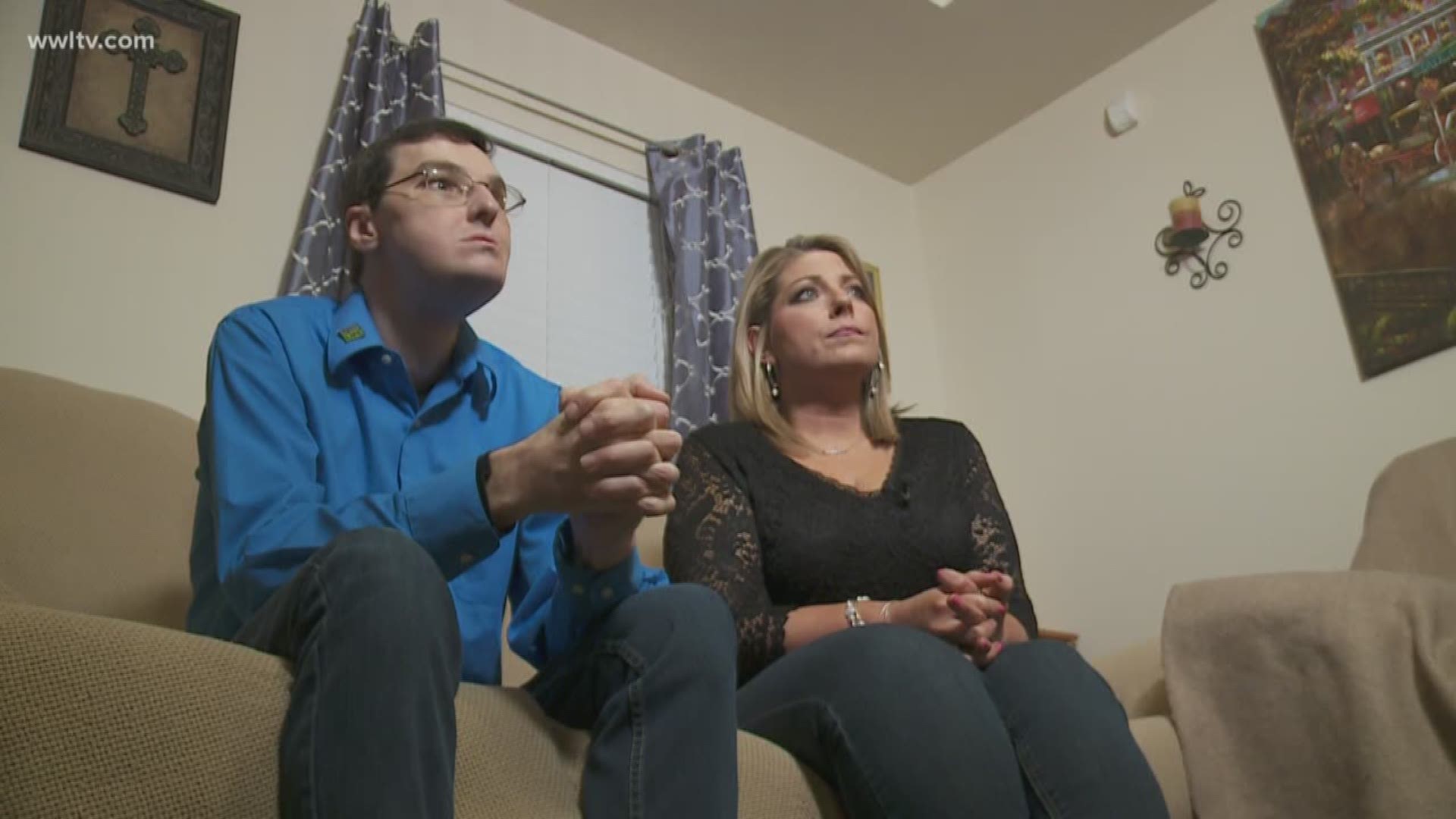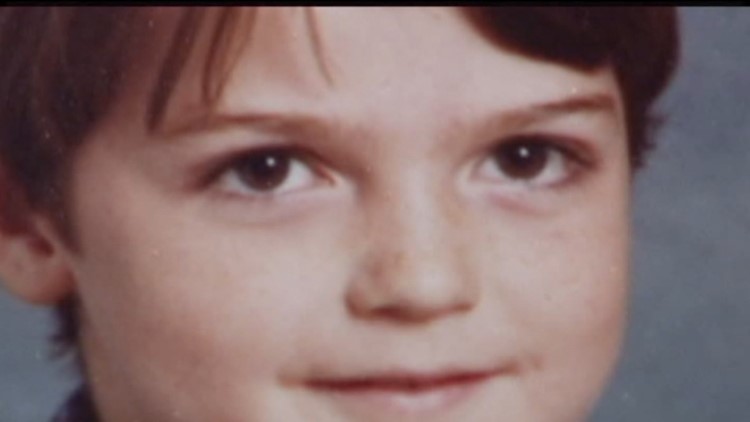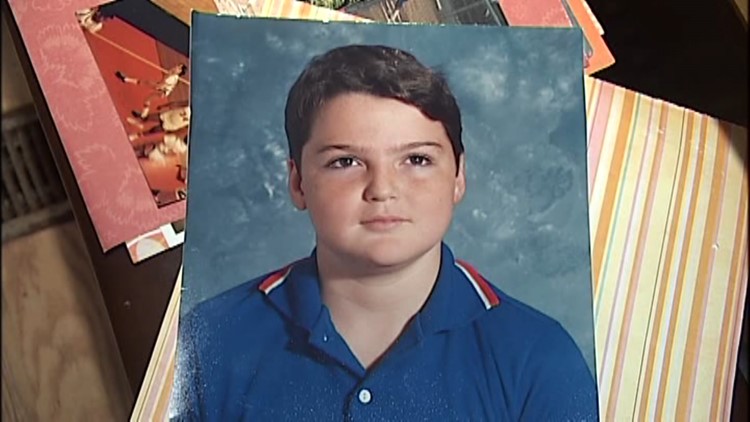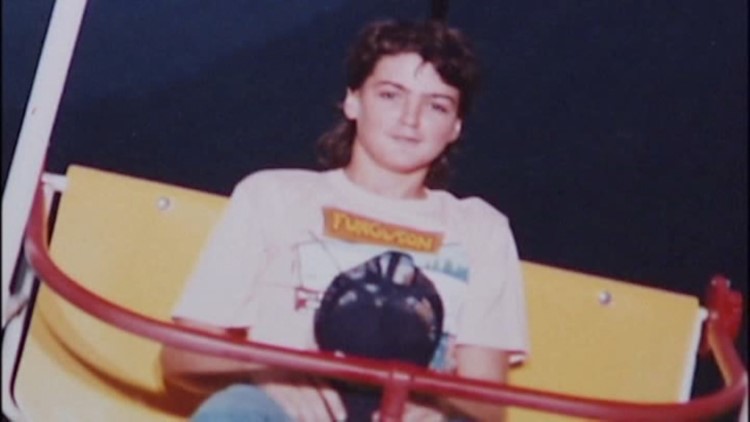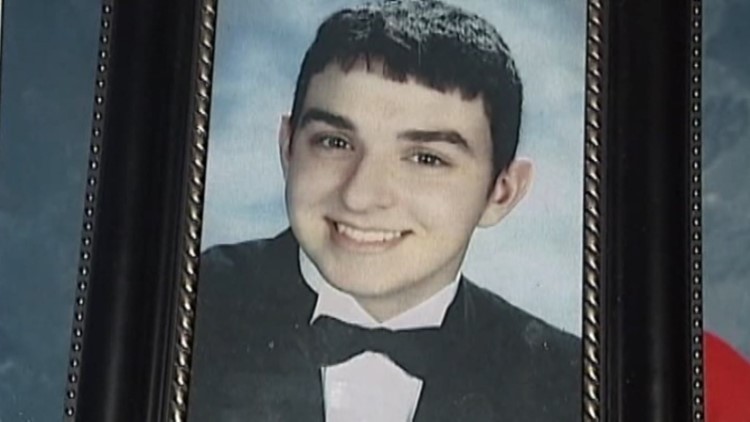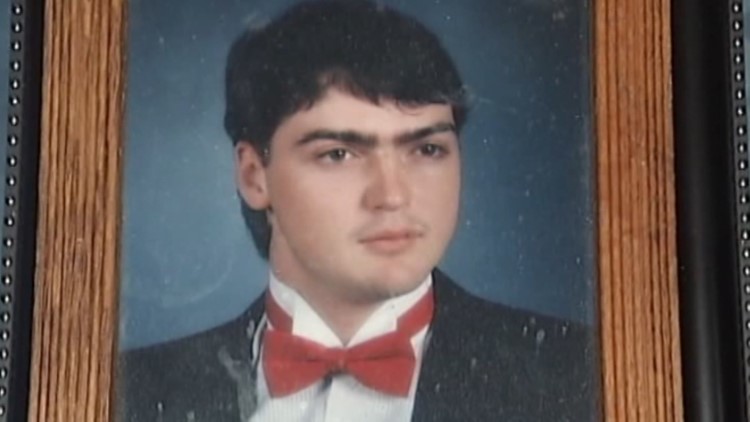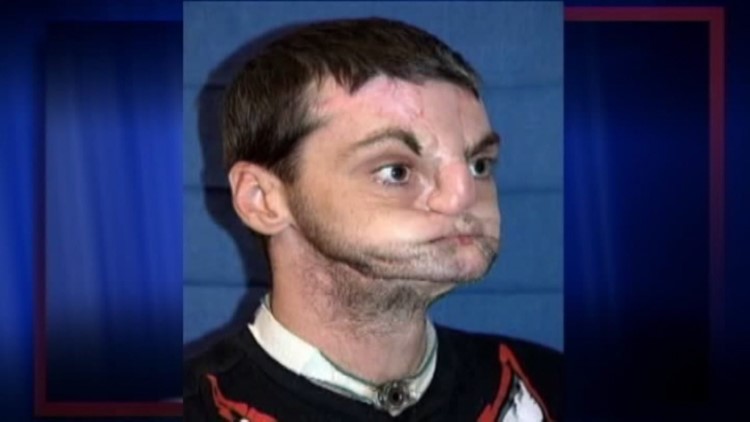It's the simple things in life Richard Norris will never take for granted.
Most evenings, he can be found with his girlfriend, Melanie Solis, walking their three dachschunds, Otis, Baxter and Boudin, around their neighborhood near Covington.
"A lot of people don't realize how short of a life we have. I do," Norris said, while holding a leash.
It's been a long road for Norris, 43, to get here. He grew up in a small town in the Blue Ridge Mountains of Virginia. He was a typical kid who played little league and grew into a handsome young man.
But in 1997, at the age of 22, an accident changed his life.
"For 15 years, I lived as a recluse," he said. "I didn't go out of the house that much."
A loaded shotgun accidentally went off in Richard's face destroying his nose, cheekbones and jaw. When he did go out, he usually wore a mask to cover his damaged face.
PHOTOS: Richard Norris through the years
But a second chance for Norris came in 2012. Dr. Eduardo Rodriguez at the University of Maryland had been pioneering face transplant techniques since 2005. He approached Richard with a daring proposal. He had the chance to receive the most ambitious full face transplant ever performed, replacing not just his skin, but jaw, teeth and tongue, as well.
The opportunity was funded by the U.S. Department of Defense. The agency wanted to do research on face transplants that could help military members injured in the line of duty, for example, those hurt in IED explosions.
"It was leaping into the unknown," Norris said. "What we did was never done before. We had no idea if it was even possible."
The surgery took 36 hours and 150 medical professionals. He received a face from the family of Joshua Aversano, a 21-year-old man who had just enlisted to become a marine. He died after being hit by a van.
"I was given a gift from a brave young man, and a very brave family," Norris said. "I carry his legacy with me every day."

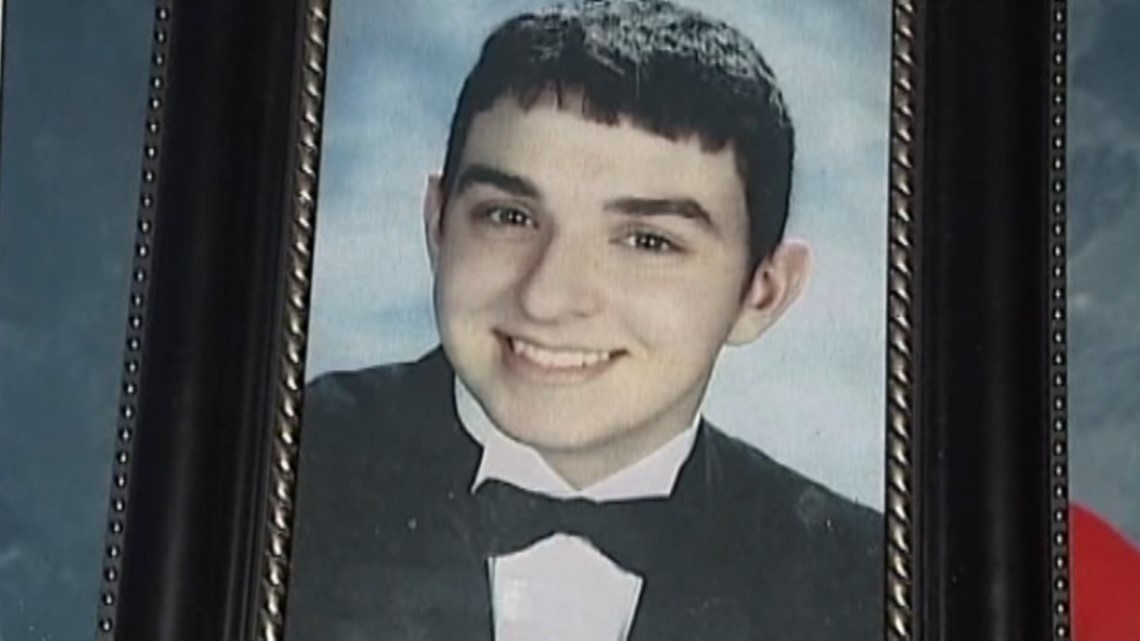
Norris spent six months in the hospital, and another four months doing physical therapy.
The radical surgery made Norris a medical celebrity and he was covered by reporters around the world.
And that's where Melanie Solis comes in. She saw Norris's story in a documentary, entitled, "A Face in the Crowd."
"I was just really inspired and I had to write him and tell him that I thought he was awesome," Solis said.
In a story about modern medicine, these couple met in the most modern of ways.
She sent him a message on Facebook.

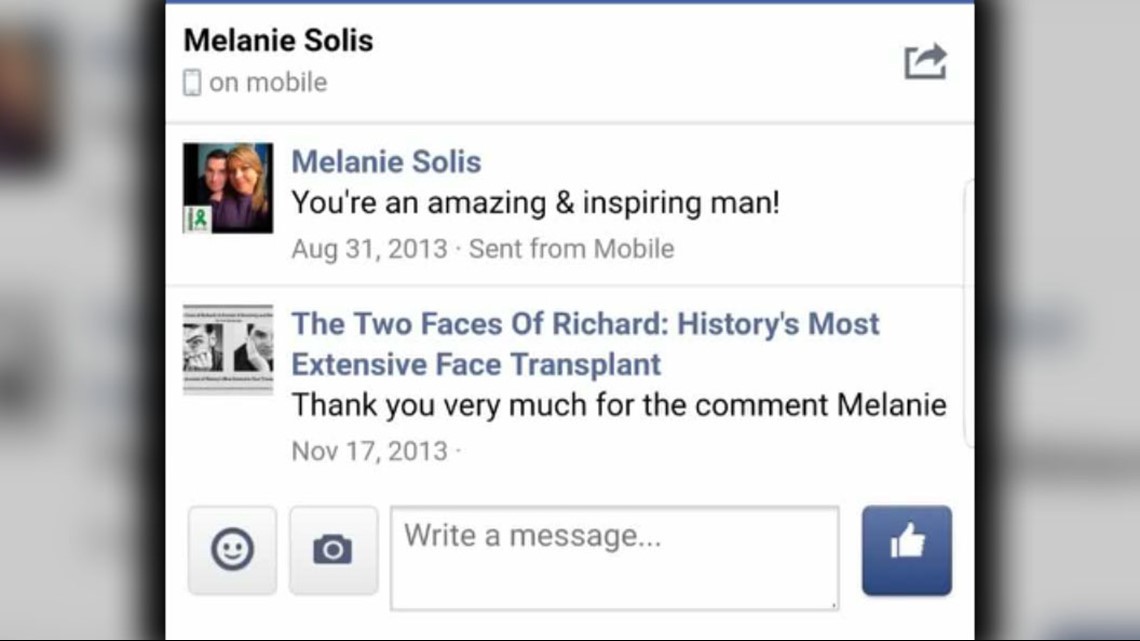
"It just said, I was really moved by your story, and I think you're going to live to do great things, or something like that," she said.
But Norris had gotten thousands of messages following the documentary. He took the time to respond to each one, but he didn't get to Melanie's message for months. Once he did, though, they struck up a friendship over email.
"We just talked and never stopped," she said.
Finally he moved from Virginia to Louisiana to be with Melanie.
"He came down here and never left. That was about 5 years ago," Solis remembers.
They've built a home on the Northshore filled with love, but unfortunately, Norris's story doesn't end there with a happily ever after. He is now facing a new medical crisis. News that hit Solis particularly hard.
"The first thing that came to my mind was, I can't live without him. if something happens to him," Solis said.
The medicine Norris takes to make sure his body doesn't reject his transplanted face is called Prograf. One side effect is kidney damage, and over the last two years, doctors have seen his kidney function decline. Now Norris needs a kidney transplant.
"Later this year, at some point, he will need either a kidney transplant or will need to go on dialysis of some type," said Dr. Sean Roberts, Richard's nephrologist at Ochsner on the Northshore.
Dr. Roberts explained it's not unusual to see kidney problems in transplant patients. Right now, the best outcome for Norris is to find a live donor-- someone willing to donate one of their kidneys to him.
"That's why we've been aggressively moving to try to find a living donor for him, because that would be the best scenario for him to not go to dialysis, but go straight to kidney transplant," said Dr. Roberts.
Norris is registering for several different donor registries, trying to find a match, but it can take up to five years. His failing kidneys cause him to feel tired and rundown.
"I cried at work everyday, but then I'd come home and I wouldn't let him see me like that because I didn't want him to see how upset I was," Solis said.
Solis is turning her fears into action. She ordered magnets for her car, that feature Norris' blood type and a phone number. They're asking everyone they know to register to become a donor, hoping to find a match.
"It's a waiting game. it's a marathon. it's not a sprint," said Richard.
In the meantime, Richard and Melanie are enjoying their quiet life on the Northshore. Richard currently counsels other patients considering face transplants. He said it's rewarding work, because he knows what they'll be going through.
"It's easier for someone that's been in their shoes to tell them what it's going to be like, than it is for a doctor to say, that this is what we think it's going to be like," he said.
And he's focusing on the positives.
"I'm with the love of my life," Norris said.
Surrounded by their three dogs, Otis, Baxter and Boudin, Norris and Solis are facing this next challenge, together.

